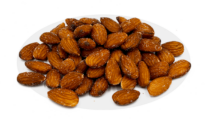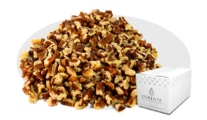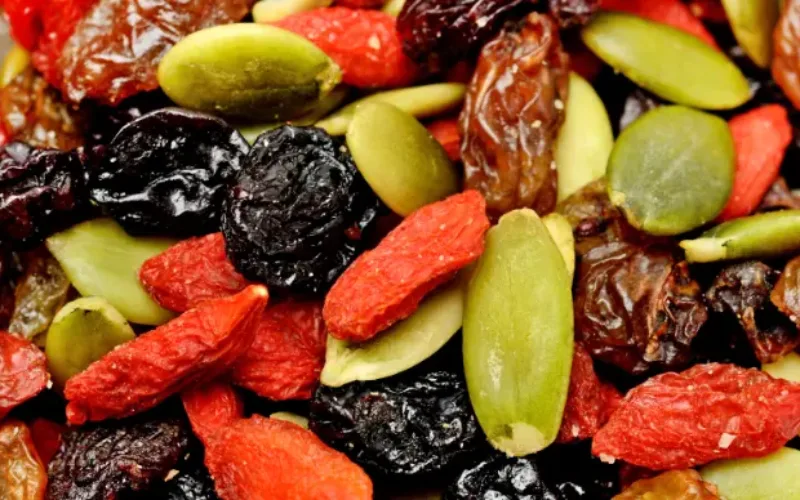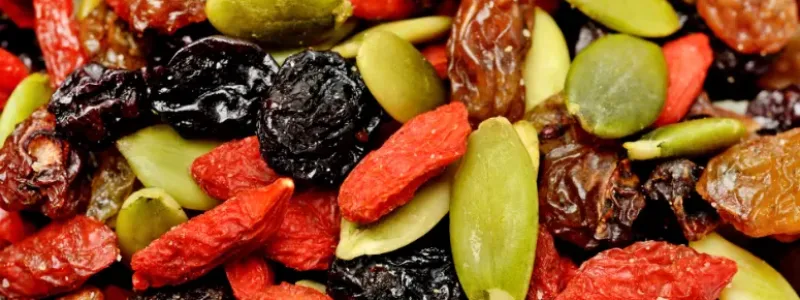Written By Sam Henselijn
Cashews are a variety of nuts with a soft buttery flavor. Cashews are sold in different forms, including roasted, raw, salted, and unsalted. Here are 5 health benefits of roasted and salted cashews.
Cashews are extremely rich in beneficial nutrients and help to improve health significantly. The benefits cashews can offer you include improved blood sugar levels, weight loss, and a healthier heart. Here are five benefits of cashews and how they help improve your health.
5 Health Benefits of Roasted and Salted Cashews
Cashews are an antioxidant powerhouse. Cashew contains two classes of antioxidants; carotenoids and polyphenols, which improve immunity. In addition, cashew helps reduce inflammation and oxidative damage.
Cashews Are Rich in Nutrients
Cashews are particularly rich in unsaturated fats known to reduce
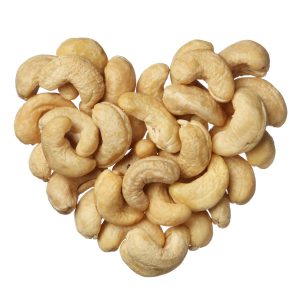
the risk of heart diseases. They also contain manganese and magnesium, crucial for bone health. Cashews have the same protein quantity as cooked meat and are low in sugar. Furthermore, they contain copper, a vital mineral for energy production.
Cashew Helps to Improve Heart Health
Cashews have polyunsaturated and monounsaturated fats that help to decrease triglycerides and LDL cholesterol levels. As a result, regular consumption of cashews can help lower the risk of heart diseases and stroke. Cashew is also rich in magnesium, which plays a crucial role in the human body. For example, a Framingham heart study revealed that people with a high magnesium intake have a 34% lower chance of abdominal artery calcification. The same research showed a 58% lower case of coronary artery calcification.
Cashews Help to Reduce Weight
Cashews can help to lose weight. They are associated with lowering body weight. In addition, they will help keep a healthy weight by ensuring you feel full and contribute to thermogenesis.
Beneficial For People With Type 2 Diabetes
Cashews are highly beneficial to people living with type 2 diabetes. And that’s because they are rich in fiber, which can help reduce blood sugar levels. It also offers protection against type 2 diabetes. A study revealed that eating cashews will help reduce the risk of blood sugar spikes.
Where Are Cashews Grown?
Cashew (Anacardium Occidentale) is native to Northeastern Brazil.
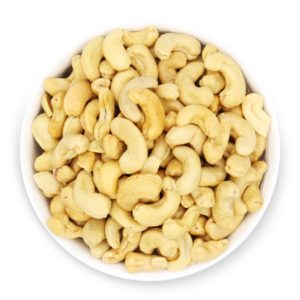
However, cashews are grown commercially in many tropical locations worldwide, including Southeast Asia, India, East Africa, Vietnam, Australia, etc. Currently, the leading producers of cashews are Nigeria, Vietnam, India, Côte d’Ivoire, Brazil, and Benin.
Different Cashews Sizes
You may have observed that cashew nuts are different in size if you are a fan of cashew nuts. Below are some of the standard cashew nut sizes available:
W-180
W-180 is the biggest and the most expensive cashew nut available globally. As a result, it is popularly known as the king of cashew nuts. And this is because of its size, and it remains wholly unbroken when sold. At L’ORENTA, we use this cashew size.
W-210
Although W-210 are huge cashew nuts and quite expensive, they are smaller than W-180. Therefore, they are commonly called Jumbo size.
W-240
The W-240 is popularly known as the standard cashew nut size, although they are not as big as W-180 and W-210. In addition, the W-240 is considerably more affordable than the previous sizes. At L’ORENTA, we use this cashew size.
W-320
The W-320 cashew nut size is the most accessible size to find because suppliers widely distribute them globally. As a result, they offer the ideal balance between cost and size.
Other standard cashew nut sizes are W-450 and Scorched wholes.
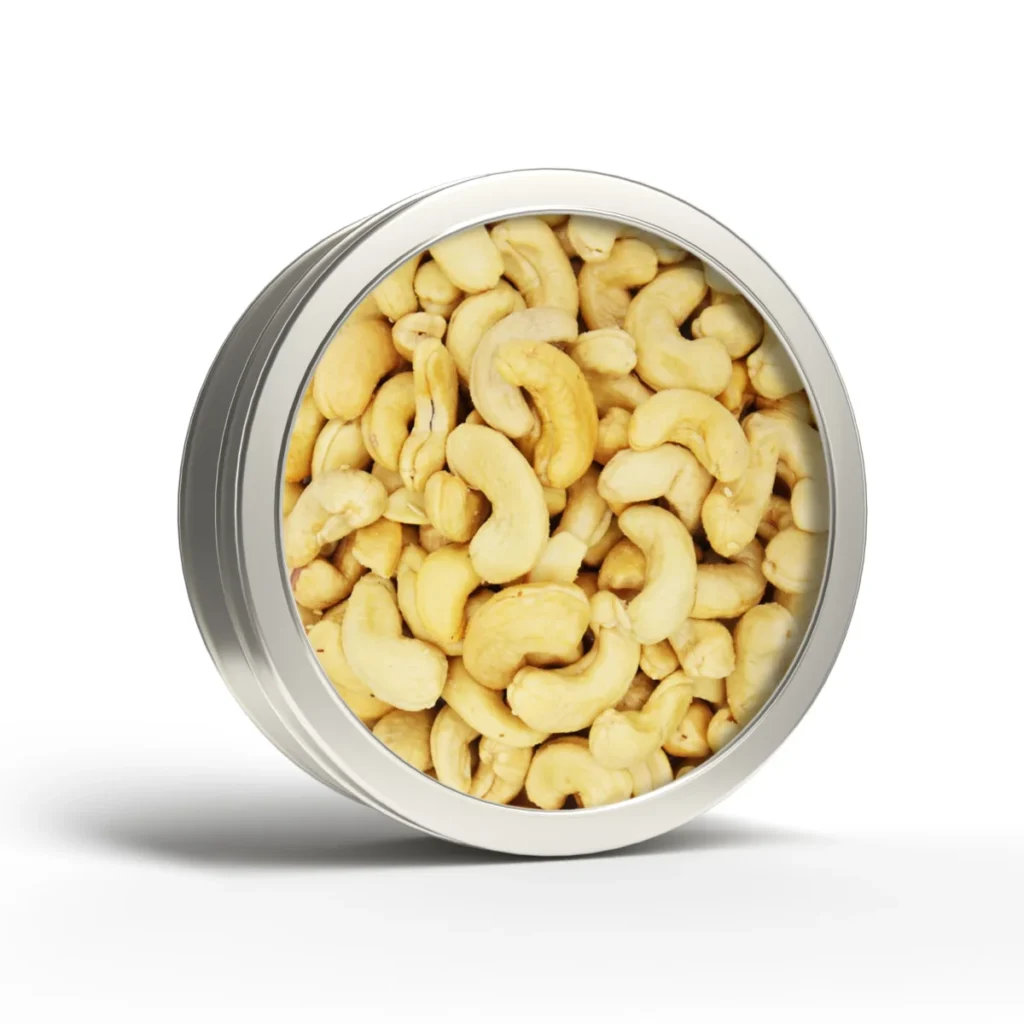
Fun Facts About Cashews
Here are some fun facts about Cashews you might like.
- Although native to Northeastern Brazil, the Cashew tree was taken to India by Portuguese sailors between 1560 and 1565.
- The informal name for cashews comes from the Portuguese name for the nut, which is Caju.
- The best soils for growing cashew trees are sandy soils.
- The United States of America consumes more than 90% of the world’s cashew production.
- Cashew nut’s shell is a crucial ingredient in waterproofing, lubricants, and arms production.
- The cashew tree belongs to the Anacardiaceae family. It grows to an average height of 32 to 50 feet.
- Cashew nuts are essential ingredients in industrial products such as brake lines and paints.
Final Thoughts
Cashews are rich sources of protein, fiber, and healthy fats. They also contain beneficial plant compounds, minerals, and vitamins. Ensure you choose roasted and salted cashews because they have more antioxidant. Click here to get L’Orenta’s roasted and salted cashews. You will satisfy your cashew craving and enjoy numerous health benefits.
FAQ: Health Benefits of Roasted and Salted Cashews
What nutritional benefits do roasted and salted cashews offer?
Roasted and salted cashews are packed with beneficial nutrients that significantly improve health. They are rich in unsaturated fats, which are known to reduce the risk of heart diseases, and contain essential minerals like manganese and magnesium for bone health. Cashews also offer a good amount of protein, comparable to cooked meat, and are low in sugar. Additionally, they are an excellent source of copper, which is vital for energy production.
How do cashews impact heart health?
Cashews contain polyunsaturated and monounsaturated fats that help reduce LDL cholesterol levels and triglycerides, lowering the risk of heart disease and stroke. They are also rich in magnesium, a mineral that has been linked to a reduced risk of abdominal artery calcification and coronary artery calcification, further promoting heart health.
Can eating cashews help with weight management?
Yes, incorporating cashews into your diet can aid in weight loss and help maintain a healthy weight. They make you feel full, which can prevent overeating, and contribute to thermogenesis, the process of heat production in the body, aiding in weight management.
Are cashews good for people with Type 2 diabetes?
Cashews are beneficial for individuals with Type 2 diabetes because they are high in fiber, which can help regulate blood sugar levels. Consuming cashews can reduce the risk of blood sugar spikes, offering protection against Type 2 diabetes.
Where are cashews grown?
Cashews (Anacardium Occidentale) are native to Northeastern Brazil but are now grown in many tropical locations worldwide, including Southeast Asia, India, East Africa, and Vietnam. The leading producers of cashews include Nigeria, Vietnam, India, Côte d’Ivoire, Brazil, and Benin.
What are the different sizes of cashew nuts available?
Cashew nuts come in various sizes, with W-180 being the largest and most expensive, known as the “king of cashew nuts.” W-210 is slightly smaller and known as “Jumbo size,” while W-240 is considered the standard size and is more affordable. W-320 is the most accessible size, offering a balance between cost and size. Other standard sizes include the smaller W-450 and Scorched wholes.
Which country eats the most amount of cashews?
The United States consumes more than 90% of the world’s cashew production.
Why should I choose roasted and salted cashews?
Roasted and salted cashews offer a higher antioxidant content compared to other forms. By choosing L’Orenta’s roasted and salted cashews, you not only satisfy your craving for this delicious nut but also enjoy numerous health benefits, including improved heart health, weight management, and blood sugar regulation.
Sam Henselijn Author’s Biography – Meet L’Orenta Nuts CEO
Copyright 2024 L’Orenta Nuts
L’Orenta Nuts proudly holds the SQF food safety certification, symbolizing our unwavering dedication to upholding the highest standards of food safety and quality. This certification guarantees that our products undergo rigorous scrutiny, ensuring transparency, traceability, and adherence to global food safety regulations for the utmost consumer confidence.
L’Orenta Nuts has the HACCP (Hazard Analysis and Critical Control Points) certification is a systematic approach to identifying, evaluating, and controlling food safety hazards. It ensures that food products are produced and handled in a manner that minimizes risks and complies with safety standards.
Our GMP (Good Manufacturing Practices) certification ensures that a manufacturing facility adheres to comprehensive quality and safety standards while producing pharmaceuticals, food, and other consumer goods, promoting consistency, quality, and compliance with regulatory requirements.
L’Orenta is an FDA-approved manufacturing facility and has met the rigorous standards set by the U.S. Food and Drug Administration. It demonstrates compliance with regulations, ensuring the production of safe and high-quality food products.


